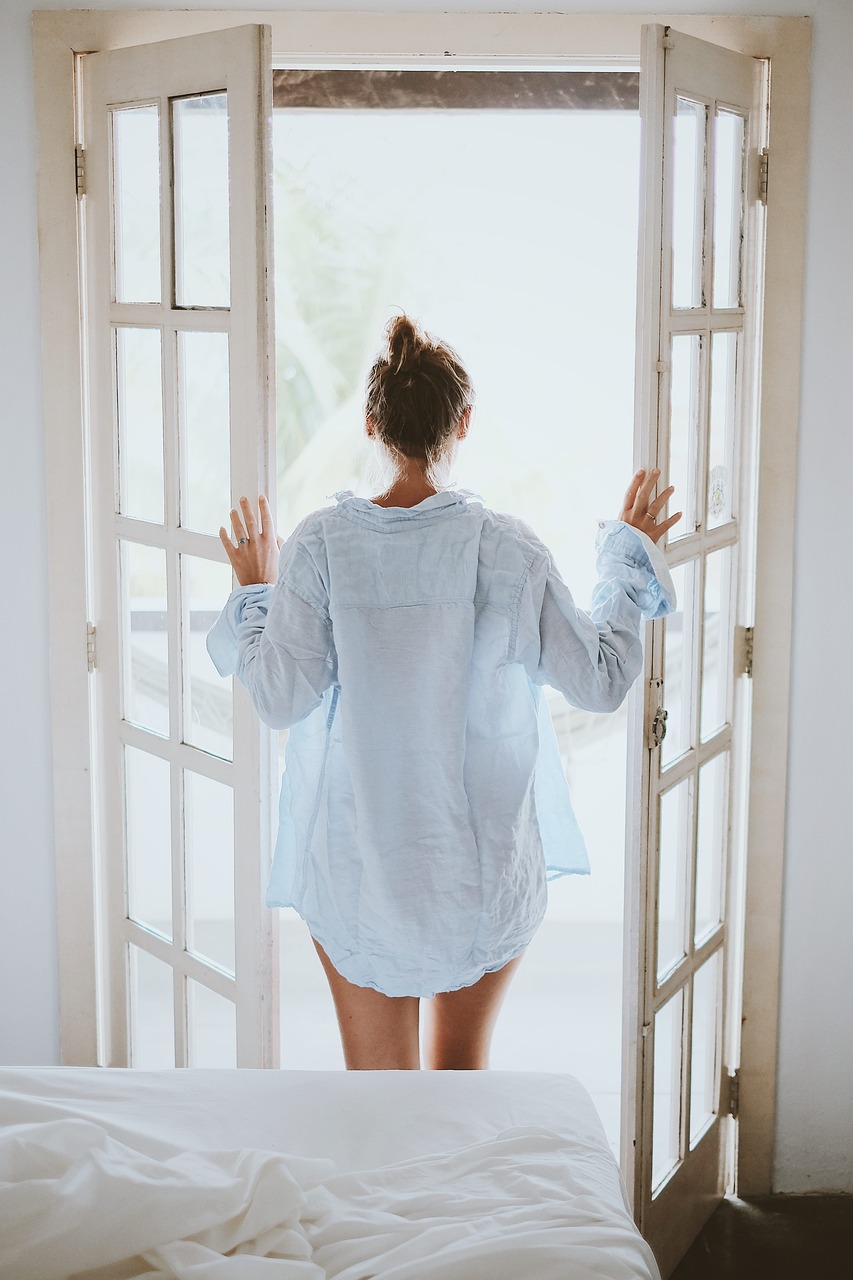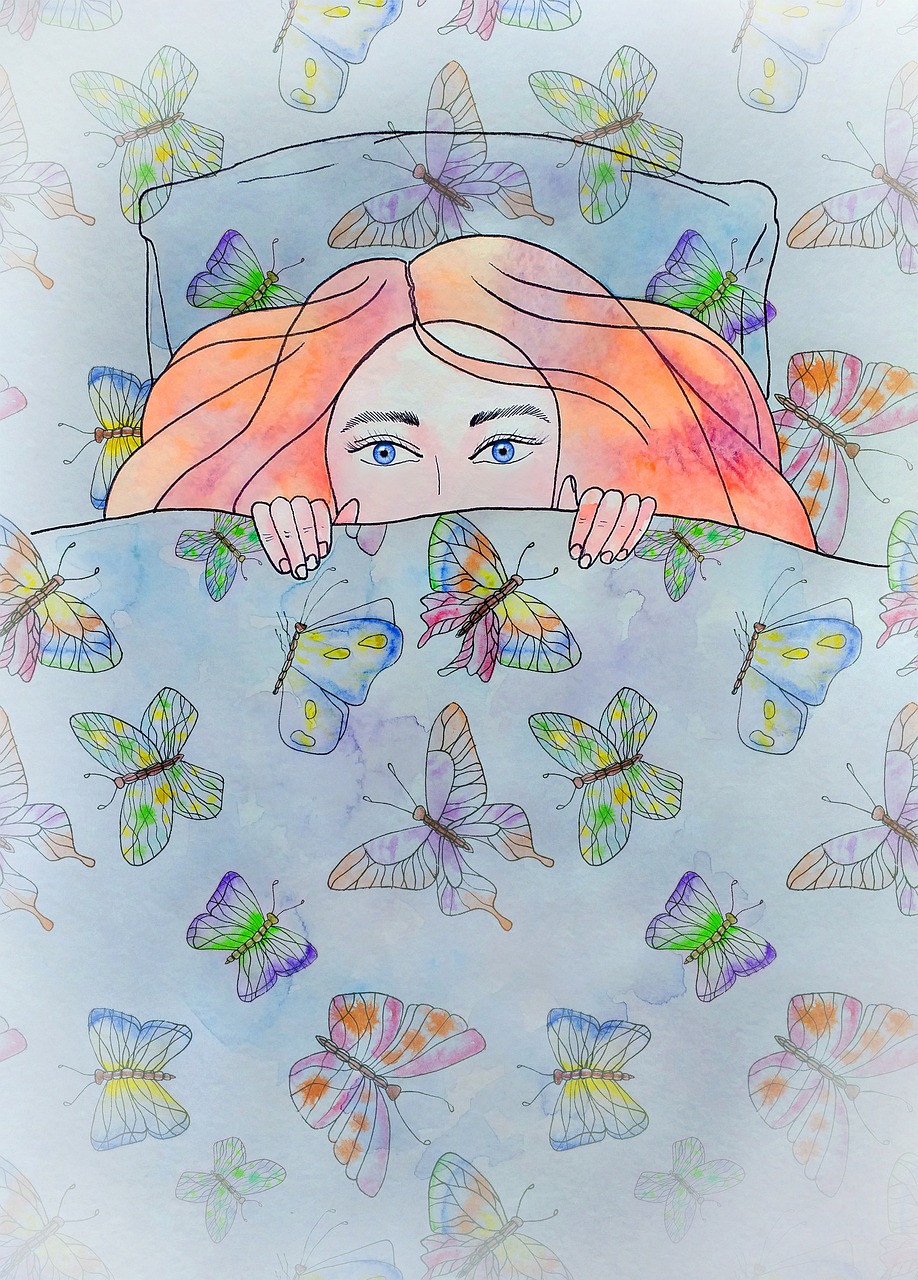AITA for waking up my partner after he falls asleep to organise himself and his belongings?
 Image credit: Pixabay (This is example image – Not the actual photo)
Image credit: Pixabay (This is example image – Not the actual photo)
Is She Being a Mom or Just Frustrated?
In a relatable tale of modern relationships, a young woman grapples with her fiancé’s struggle to maintain a routine amidst his ADHD diagnosis. As he comes home from a physically demanding job, he falls into a cycle of neglecting basic responsibilities, leaving her feeling like a caretaker rather than a partner. Her attempts to nudge him towards better habits spark tension, leading her to question if she’s being unreasonable or if her frustrations are justified. This story resonates with anyone who’s ever felt the weight of managing a partner’s shortcomings while trying to maintain their own sense of balance.
Family Drama Over Routine Disputes
A 24-year-old woman is facing conflict resolution challenges in her relationship with her fiancé, a 23-year-old man diagnosed with ADHD. The couple is navigating wedding tension as they prepare for their future together, but daily routines have become a source of frustration.
- Background: The fiancé has recently started a physically demanding job that requires him to be on his feet for nine hours a day. Meanwhile, the woman has just completed her studies and is currently seeking employment.
- Current Routine: After work, the fiancé tends to unwind by sitting down and scrolling through his phone. His evening activities include helping with dinner, playing video games, and snacking late at night before falling asleep without completing basic tasks.
- Issues Faced: The fiancé often neglects to charge his phone, change out of his work clothes, brush his teeth, or wash his dishes. This leads to him waking up frustrated the next day due to a flat phone, smelly clothes, and fatigue.
The woman has taken it upon herself to wake him up shortly after he falls asleep, encouraging him to get changed, charge his phone, and set alarms. However, this approach has led to increased tension between them.
- Feelings of Frustration: The woman feels overwhelmed by the responsibility of managing her fiancé’s routine, likening her role to that of a mother. She has been consistently helping him with chores and reminders, but this has not yielded the desired results.
- Conflict Resolution Attempts: Despite her efforts to support him, the fiancé has become increasingly upset with her interventions. The woman is now questioning whether her actions are justified or if she is being unreasonable.
- Power Dynamics: The woman feels a sense of guilt for wanting to address these issues, especially since her fiancé is the one working while she is currently unemployed. This dynamic adds to her internal conflict about whether she should simply be grateful for his efforts.
As the couple navigates this family drama, the woman is left wondering if she is the one at fault for wanting her fiancé to take more responsibility for his daily routine. The situation raises important questions about balance in relationships, the impact of ADHD on daily life, and the need for effective communication in conflict resolution.
This is Original story from Reddit
 Image credit: Pixabay (This is example image – Not the actual photo)
Image credit: Pixabay (This is example image – Not the actual photo)
Story
I, 24 (f), live with my fiancé, 23 (m). Quick background info – he is diagnosed with ADHD and is taking meds for it. He’s recently acquired a new physical job which has him on his feet for 9 hours a day.
Something that really bothers me is that he can never get into a routine and then gets mad about the consequences of that. His current routine is that he gets home from work, sits down, and scrolls on his phone. He will help with dinner, and then he’s back to video gaming or on his phone.
Then he will have a late-night snack and just pass out on the bed. He doesn’t charge his phone, get changed out of his work clothes, brush his teeth, wash his dishes, or anything. He simply passes out, and then the next day is upset when his phone is flat, his clothes are smelly, and he’s tired.
Lately, I’ve been waking him up just after he passes out to tell him to get up, get changed, charge his phone, and set his alarms. Is this a dick move? It’s so frustrating to have to hear him complain about these things that he’s only doing to himself.
I’ve spent months putting his phone on charge for him, washing his dishes, and his clothes, and I’m almost about to leave because I feel like a mother picking up after her child. So, I’ve been putting it on him, and he’s only getting more mad at me. Am I the asshole?
He works, and I don’t, so there’s a feeling that maybe I should just be grateful. Thanks, Reddit.
View the Original Reddit Post Here
Summary of Reddit Comments
The top Reddit comments indicate a general agreement that the original poster (OP) is not the antagonist (NTA) in this situation. Many users emphasize the importance of personal accountability for the partner with ADHD, suggesting that while support is necessary, it should not come at the cost of the OP feeling like a caretaker. The consensus is that open communication and establishing mutual responsibilities are crucial for a healthy relationship dynamic.
Overall Verdict: NTA
Expert Advice for Resolving the Conflict
Navigating relationship dynamics, especially when one partner has ADHD, can be challenging. It’s essential to approach the situation with empathy and understanding while also advocating for personal accountability. Here are some practical steps for both partners to consider:
For the Woman (OP)
- Communicate Openly: Schedule a calm, uninterrupted time to discuss your feelings. Express how the current routine affects you without placing blame. Use “I” statements, such as “I feel overwhelmed when I have to remind you about tasks.”
- Set Boundaries: It’s important to establish what you are comfortable managing. Let your fiancé know that while you want to support him, you cannot take on the role of a caretaker.
- Encourage Independence: Instead of waking him up to remind him of tasks, suggest creating a checklist or a visual reminder system that he can refer to. This empowers him to take responsibility for his routine.
- Seek Professional Guidance: Consider suggesting couples therapy or ADHD coaching. A professional can provide strategies tailored to your unique situation and help facilitate better communication.
For the Fiancé
- Practice Self-Awareness: Acknowledge the impact of your ADHD on daily routines. Understanding how it affects your behavior can help you take proactive steps to manage it.
- Take Initiative: Work on developing a routine that includes charging your phone, changing clothes, and completing chores. Set alarms or reminders on your phone to help you remember these tasks.
- Communicate Your Needs: Share with your partner what specific support you find helpful. This could include reminders or specific tasks you would like her to assist with, but ensure it’s a collaborative effort.
- Explore ADHD Management Strategies: Look into tools and techniques that can help manage ADHD symptoms, such as time management apps, organizational tools, or mindfulness practices.
Joint Steps for Both Partners
- Establish Mutual Responsibilities: Create a list of daily and weekly tasks that both of you can contribute to. This fosters teamwork and reduces the feeling of one partner being solely responsible.
- Regular Check-Ins: Schedule weekly discussions to assess how both of you are feeling about the routines and responsibilities. This allows for adjustments and reinforces open communication.
- Celebrate Progress: Acknowledge and celebrate small victories together. Positive reinforcement can motivate both partners to stay committed to their responsibilities.
By approaching the situation with empathy and a willingness to collaborate, both partners can work towards a healthier relationship dynamic that respects each other’s needs and promotes personal accountability.
Join the Discussion
 Image credit: Pixabay (This is example image – Not the actual photo)
Image credit: Pixabay (This is example image – Not the actual photo)
What do you think? Would you have handled this differently?
Share your thoughts below! Vote: Do you agree with Reddit’s verdict?













